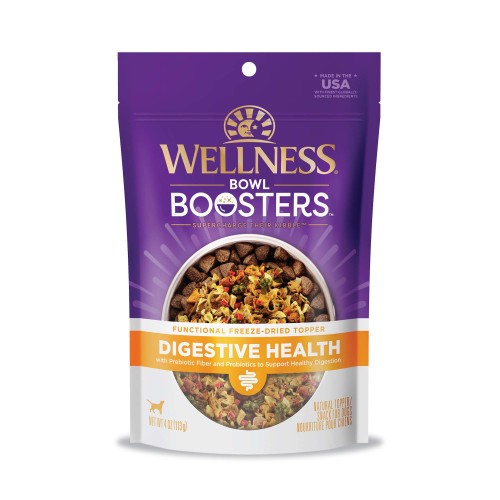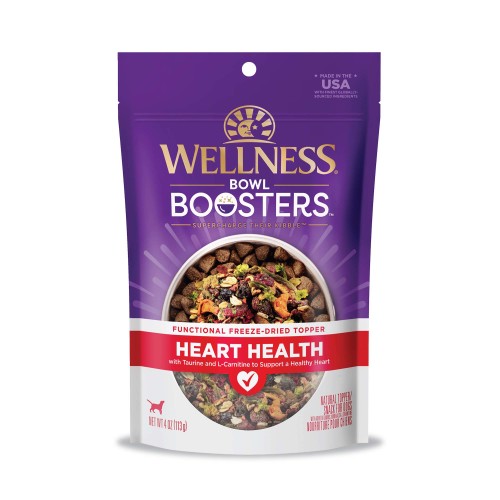June 3, 2025
Health Benefits of Salmon as a Protein Source in Your Diet
Salmon is an incredibly nutrient-dense food to include in your own diet, and your dog’s diet! Compared to other animal proteins, salmon has some unique benefits for inflammation, digestion, heart health, and more.
You’ll find real salmon in our new recipes crafted for dogs with sensitive stomachs & skin: our Wellness CORE+ and Wellness Complete Health kibbles.
Read on to learn about the health benefits of salmon, including how often you should include salmon in your diet.
Importance of Protein in the Diet
As a Registered Dietitian, I understand the importance of consuming an adequate amount of protein for optimal health – for both humans and canines.
Protein is a macronutrient made up of amino acid building blocks. These amino acids are essential for our bodies to function properly.
You may already know that protein is critical for muscle growth and recovery, but it’s involved in several other important bodily functions. Some roles that protein plays in the body include:
- Making hormones and enzymes
- Cell structure and support
- Messengers that transmit signals between different cells, organs, and tissues
- Makes antibodies that help fight off infections
- Transporting different molecules around the body
Salmon as a Protein Source
Protein is found in lots of foods. The foods with the highest concentration of protein are animal foods, such as meat, poultry, and fish.
A 3 ounce serving of salmon provides 17 grams of protein.
While salmon doesn’t have quite as much protein as say, chicken breast, the protein in salmon is generally considered easier to digest than meat or poultry protein, because fish muscle proteins have a more delicate and uniform structure.
The easy digestibility of salmon protein, plus the additional health benefits it carries, makes salmon a smart choice to include in your diet on a regular basis.
Salmon Health Benefits
Salmon is considered a fatty fish. This means it contains high levels of omega-3 fatty acids.
Our bodies cannot produce omega-3 fatty acids on our own, and neither can our dogs! This means omega-3s are essential, so we must get them from our diet. And salmon is one of the best food sources!
Omega-3 fatty acids are important for several reasons. Here are some of the benefits:
- Brain development for babies and puppies
- May support cognitive functioning later in life for older humans and senior dogs
- Immune system support by reducing inflammation
- Heart health by reducing the risk of heart disease and stroke
- Joint health from anti-inflammatory properties
- Skin health for humans and dogs, as well as coat health for dogs
Besides omega-3 fatty acids, salmon provides important micronutrients, including vitamin B12, vitamin B6, vitamin D, niacin, riboflavin, thiamin, selenium, calcium, potassium, and more.
How often should I eat salmon?
The American Heart Association and current Dietary Guidelines recommend adults consume around 8 ounces of fatty fish like salmon per week. This is about 2-3 servings.
For dogs, feeding small amounts of cooked salmon each day is a great source of nutrition, including easily-digestible protein and essential omega-3 fatty acids.
Our Wellness CORE+ and Wellness Complete Health kibbles are thoughtfully crafted to provide a complete and balanced meal that includes an appropriate amount of salmon for your dog’s needs.






